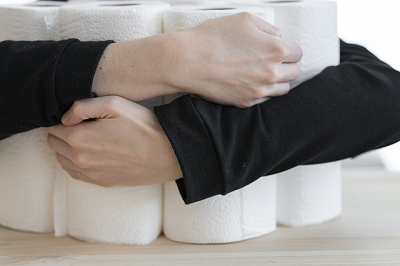Female Health: Show You How Ureaplasma Urealyticum Can Cause Endometritis
Ureaplasma urealyticum(UU) is a common pathogen of sexually transmitted infections, leading to conditions such as urethritis and adnexitis, which can be transmitted through sexual contact. If left untreated, it can result in severe gynecological complications, such as pelvic inflammatory disease (PID) and infertility, thus posing a significant threat to the female reproductive system.

Endometritis is a prevalent gynecological condition caused by various pathogens, including bacteria and viruses. This condition leads to inflammation and hyperplasia of the endometrium, and in severe cases, it can cause infertility. Common symptoms include lower abdominal pain, irregular menstruation, and dyspareunia, which severely impact a woman's quality of life and reproductive capabilities.
In recent years, a growing body of research has indicated a close association between UU and several gynecological diseases, particularly endometritis. This has raised concerns about whether UU can indeed cause endometritis.
Does UU Cause Endometritis?
UU primarily resides in the urogenital tract. Under normal circumstances, the number of them is relatively low and does not significantly impact human health. However, when the immune system is compromised, or local conditions change, the number can increase, leading to various inflammatory responses. Endometritis is one such common complication.
Specifically, UU can cause endometritis through the following mechanisms:
1. Inflammatory Response: The infection by UU triggers an inflammatory response in the body, activating the immune system and releasing inflammatory mediators. In the endometrium, this response leads to congestion, edema, and structural damage, impairing its normal function.
2. Mucosal Damage: Infection with UU can damage the endometrial mucosa, stripping it of its protective function. The damaged mucosa becomes susceptible to other pathogens, exacerbating the inflammatory response and leading to endometritis.
3. Immune Abnormalities: UU may cause abnormal immune responses, where immune cells attack normal tissues, resulting in tissue damage and inflammation. This immune dysregulation can also lead to autoimmune endometritis, worsening the condition.
4. Cell Damage: UU infection can directly or indirectly damage endometrial cells. Such cellular damage affects the structure and function of the endometrium, altering its sensitivity and response to reproductive hormones, which contributes to the onset and progression of endometritis.
How to Treat Endometritis Caused by UU?
Endometritis caused by UU is manageable and can be effectively treated with timely intervention. Most patients achieve sound outcomes with appropriate treatment:
Women don't need to panic too much about endometritis caused by UU. As long as timely detection and active treatment are carried out, most patients can achieve good therapeutic effects:
1. Antibiotics: Doctors will prescribe suitable antibiotics based on the severity of the infection and the type of pathogen involved to inhibit the growth of Ureaplasma urealyticum and control the infection.
2. Local Treatment: For patients with severe local symptoms, vaginal douching or topical medication may be used to alleviate inflammation and promote recovery.
3. Traditional Chinese Medicine (TCM): Herbal remedies such as the Fuyan Pill can be considered. These medicines have properties like promoting blood circulation, regulating menstruation, and strengthening the spleen, which help clear infections, improve gynecological discomfort, regulate menstrual cycles, and alleviate abnormal vaginal discharge. They are also effective in treating complications like endometritis and pelvic inflammatory disease caused by Ureaplasma urealyticum.
4. Immune Modulation: Immunomodulatory drugs can enhance the body’s resistance to infection for patients with compromised immune systems.
In addition to the above treatments, maintaining good lifestyle habits and a positive mindset is crucial during the treatment period. Keeping the vulva clean, changing underwear frequently, and avoiding spicy and irritating foods can aid in recovery.
Overall, there is a close relationship between UU and endometritis. To protect women's reproductive health, enhancing awareness and preventing Ureaplasma urealyticum is essential. Maintaining good personal hygiene, avoiding contact with infected individuals, and correctly using condoms can reduce the risk of infection.
You may also be interested in:
Can A Positive Ureaplasma Urealyticum Infection Affect Pregnancy?
Ureaplasma Urealyticum Causes Tubal Blockage
What's Wrong with Abdominal Pain and Blood in the Leukorrhea? Beware of Endometritis
Can Chlamydia Infection Cause Hydrosalpinx?
previous pageCan Hysterosalpingography Be Performed With Ureaplasma Urealyticum Positive Results?
next page- Daily Care Tips for Pelvic Inflammatory Disease Caused by Ureaplasma Urealyticum
- Adenomyosis with Ureaplasma Urealyticum Cured by Fuyan Pill
- Can You Get Pregnant with Endometritis?
- Can Hysterosalpingography Be Performed With Ureaplasma Urealyticum Positive Results?
- Female Health: Show You How Ureaplasma Urealyticum Can Cause Endometritis
Testimonials
- Adenomyosis with Ureaplasma Urealyticum Cured by Fuyan Pill
- Tubal blockage with hydrosalpinx can be cured by TCM shortly
- Fuyan Pill Helps A woman with Adenomyosis Get Pregnant
- A Woman with Hydrosalpinx Is Cured with Fuyan pill
- Pelvic Inflammatory Disease Testimonials
- Irregular Vaginal Bleeding and Endometrial Thickening Cured by Fuyan Pill
- Pruritus Vulvae and Frequent Urination: Mycoplasma Infection Cured after 2 Courses



